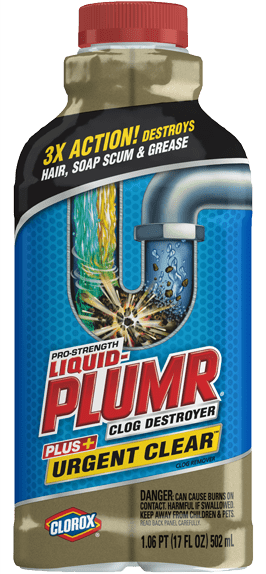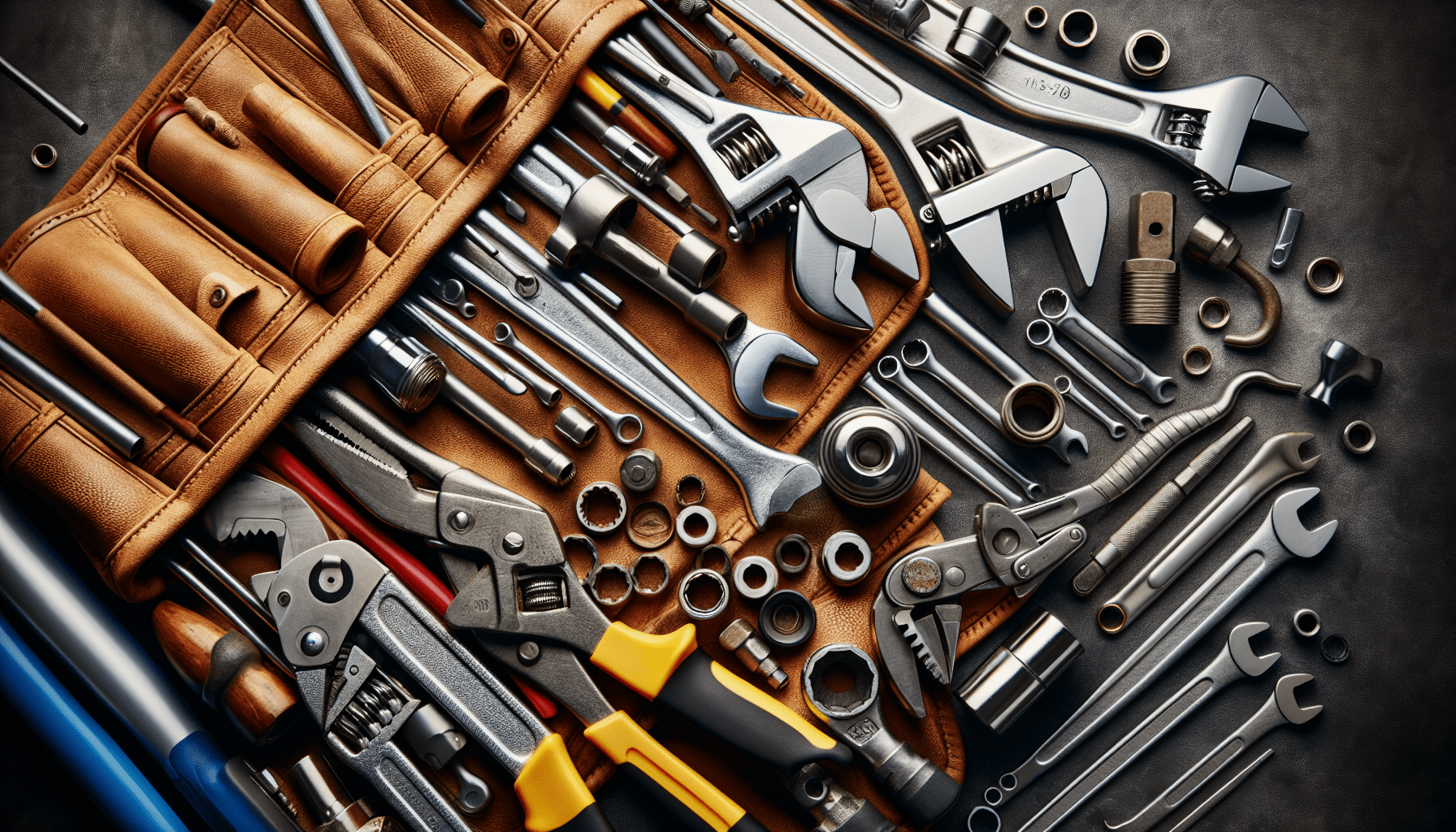In your quest to keep your pipes clean and clog-free, you may have come across the popular product known as Liquid Plumber. But just how safe is this powerful solution for your pipes? This article seeks to shed light on this commonly asked question, exploring the potential risks and benefits of using Liquid Plumber for your home plumbing system. So before you reach for that bottle of Liquid Plumber, let’s take a closer look at whether it truly lives up to its claims of safety for your pipes.
What is Liquid Plumber
Definition of Liquid Plumber
Liquid Plumber is a popular brand of drain cleaner that is specifically designed to remove clogs and blockages from pipes in plumbing systems. It comes in liquid form and is widely used as a household solution for addressing common pipe blockages.
Ingredients of Liquid Plumber
Liquid Plumber contains a combination of chemicals that work together to dissolve and remove clogs from pipes. The exact ingredients may vary depending on the specific product variant, but generally, the key active ingredients in Liquid Plumber include sodium hydroxide, sodium hypochlorite, and other cleaning agents. These chemicals are highly effective in breaking down organic matter, grease, hair, and other common causes of pipe blockages. However, it is important to carefully follow the instructions and safety precautions provided by the manufacturer when using Liquid Plumber.
Working Mechanism of Liquid Plumber
How Liquid Plumber Clears Clogs
Liquid Plumber works by creating a chemical reaction with the blockage in the pipes. When it comes into contact with the clog, the active ingredients in Liquid Plumber generate heat, which helps to dissolve the blockage. Additionally, the chemicals in Liquid Plumber create a foaming action that helps to dislodge the clog and flush it away. This combination of heat and foaming action effectively clears the blockage and allows water to flow freely through the pipes again.
Chemical Reaction with Blockages
The chemicals in Liquid Plumber, particularly sodium hydroxide and sodium hypochlorite, react with the organic matter, grease, and other substances that cause clogs. These chemical reactions break down the blockage, allowing it to be easily flushed away. It is important to note that while Liquid Plumber is highly effective against organic clogs, it may not be as effective against inorganic substances, such as mineral deposits or foreign objects lodged in the pipes.

This image is property of www.liquidplumr.com.
Types of Pipes
Different Pipes in Plumbing Systems
Plumbing systems can consist of various types of pipes, each made from different materials. Some common types of pipes used in plumbing systems include copper pipes, PVC (polyvinyl chloride) pipes, and galvanized pipes. The type of pipe used in a plumbing system can have an impact on how compatible it is with Liquid Plumber.
Common Materials Used in Plumbing Pipes
Copper pipes are commonly used due to their durability and resistance to corrosion. PVC pipes are lightweight and easy to install, making them popular choices for plumbing systems. Galvanized pipes, on the other hand, are made of steel coated with a layer of zinc, providing protection against rust and corrosion. These different materials can have varying degrees of compatibility with Liquid Plumber.
Compatibility with Different Pipes
Liquid Plumber and Copper Pipes
Liquid Plumber is generally safe to use with copper pipes. Copper is a durable material that can withstand the heat and chemical reactions caused by drain cleaners. However, it is important to follow the instructions provided by the manufacturer and use Liquid Plumber in moderation to prevent any potential damage to the pipes. It is also advisable to avoid using Liquid Plumber regularly on copper pipes, as excessive use may weaken the pipes over time.
Liquid Plumber and PVC Pipes
Liquid Plumber is safe to use with PVC pipes. PVC is a type of plastic that is resistant to the chemicals in drain cleaners, including Liquid Plumber. However, it is still important to use Liquid Plumber as instructed and avoid excessive use, as prolonged exposure to the chemicals may degrade the PVC pipes.
Liquid Plumber and Galvanized Pipes
Liquid Plumber should not be used with galvanized pipes. The chemicals in drain cleaners, including Liquid Plumber, can react with the zinc coating on galvanized pipes, potentially causing damage to the pipes. It is recommended to use alternative solutions for addressing clogs in galvanized pipes, such as mechanical methods or seeking professional plumbing services.

This image is property of www.bigbplumbing.com.
Safety Considerations
Protective Measures while Using Liquid Plumber
When using Liquid Plumber, it is important to take the necessary protective measures to ensure personal safety. This includes wearing gloves and goggles to protect your skin and eyes from potential contact with the chemicals in Liquid Plumber. It is also advisable to work in a well-ventilated area to minimize the inhalation of fumes.
Avoiding Contact with Skin and Eyes
The chemicals in Liquid Plumber can cause skin and eye irritation. It is crucial to avoid direct contact with the liquid and to rinse immediately if contact occurs. If irritation persists, it is recommended to seek medical attention.
Safety Precautions for Inhalation
Inhalation of Liquid Plumber fumes can be harmful. It is important to use Liquid Plumber in a well-ventilated area to minimize exposure to the fumes. If you experience difficulty breathing or any respiratory distress, it is important to seek fresh air immediately and consult a healthcare professional if necessary.
Proper Ventilation
When using Liquid Plumber, it is essential to have proper ventilation in the area. Open windows and turn on fans to ensure adequate airflow, helping to disperse the fumes and prevent any buildup of potentially harmful gases.
Effectiveness of Liquid Plumber
Clogs Liquid Plumber Can Clear
Liquid Plumber is highly effective in clearing common clogs found in plumbing systems. These clogs can include hair, grease, soap scum, food particles, and other organic matter that can accumulate over time. The active ingredients in Liquid Plumber work to break down these substances, allowing water to flow freely through the pipes.
Limitations of Liquid Plumber
While Liquid Plumber is effective against organic clogs, it may not be as effective against inorganic blockages, such as mineral deposits, tree roots, or foreign objects. In these situations, alternative solutions, such as mechanical methods or seeking professional plumbing services, may be necessary to address the blockage effectively.
Frequency of Use
Liquid Plumber should be used as a solution for occasional clogs and blockages. It is not intended for regular or preventive use. Excessive use of Liquid Plumber can have detrimental effects on pipes and may lead to more significant plumbing issues. It is important to follow the instructions provided by the manufacturer and use Liquid Plumber in moderation.

This image is property of www.liquidplumr.com.
Alternative Solutions for Pipe Blockages
Mechanical Methods
Mechanical methods, such as using a plunger or plumbing snake, can be effective in clearing certain types of blockages. These methods physically dislodge the clog and can be a good alternative to chemical drain cleaners like Liquid Plumber, especially for inorganic blockages or stubborn clogs.
Natural Remedies
Natural remedies, such as baking soda and vinegar or hot water and salt solutions, can also be used to address minor clogs in plumbing systems. These remedies are typically safer for pipes and the environment compared to chemical drain cleaners like Liquid Plumber. However, they may not be as effective against more severe or persistent clogs.
Professional Plumbing Services
In cases where the blockage is severe or persistent, it is advisable to seek the assistance of professional plumbers. They have the expertise and specialized equipment to effectively diagnose and address plumbing issues, ensuring the long-term health and functionality of your plumbing system.
Environmental Impact
Disposal of Liquid Plumber
When disposing of Liquid Plumber, it is important to follow local regulations and guidelines. Liquid Plumber should never be poured down drains, toilets, or storm drains, as it can contaminate water sources and harm the environment. Instead, it is recommended to dispose of Liquid Plumber at designated hazardous waste facilities or follow the instructions provided by the manufacturer for proper disposal.
Eco-Friendly Alternatives
For those concerned about the environmental impact of using chemical drain cleaners like Liquid Plumber, there are eco-friendly alternatives available. These alternatives are often made from natural ingredients and are designed to be safe for pipes and the environment. They may not be as powerful as chemical drain cleaners, but they can be effective for addressing minor clogs without the same level of environmental harm.
Impact on Water Systems and Environment
The chemicals in Liquid Plumber, when flushed down drains, can enter water systems and potentially contribute to water pollution. This can have negative effects on aquatic life and ecosystems. Therefore, it is important to use drain cleaners responsibly and consider alternative solutions whenever possible to minimize the environmental impact.

This image is property of prudentreviews.com.
Common Issues and Solutions
Blockages that Require Professional Assistance
There are instances where blockages in pipes cannot be effectively cleared using Liquid Plumber or other DIY methods. These situations often require the expertise of professional plumbers who can accurately diagnose the problem and apply the appropriate solutions. Hiring professionals ensures that the blockage is fully addressed and any underlying issues are resolved.
DIY Troubleshooting Tips
For minor blockages or clogs, there are a few DIY troubleshooting tips that can be attempted before seeking professional help. These include using a plunger, utilizing a plumbing snake, or applying natural remedies to break down the clog. However, it is important to exercise caution and stop attempting DIY solutions if they are not resolving the issue or if they are causing further damage.
Common Mistakes to Avoid
When dealing with pipe blockages, there are some common mistakes that should be avoided. These include using excessive amounts of Liquid Plumber, mixing different drain cleaners together, or attempting to physically force the blockage down the drain. These actions can lead to pipe damage, worsen the clog, or pose safety risks. It is important to follow instructions carefully and seek professional assistance if needed.
Conclusion
Final Verdict on Liquid Plumber Safety for Pipes
Liquid Plumber can be a convenient and effective solution for clearing common clogs in plumbing systems. When used correctly and in moderation, Liquid Plumber is generally safe for pipes made of copper or PVC. However, it should not be used with galvanized pipes. It is crucial to follow all safety instructions provided by the manufacturer and to consider alternative solutions for more severe or persistent blockages. Additionally, it is important to be mindful of the environmental impact of using chemical drain cleaners and to dispose of them properly. Ultimately, the safety and effectiveness of Liquid Plumber for your specific plumbing system depend on factors such as the type of pipes used and the nature of the clog or blockage. When in doubt, it is always advisable to consult with professional plumbers to ensure the best course of action for your specific situation.

This image is property of choateshvac.com.





